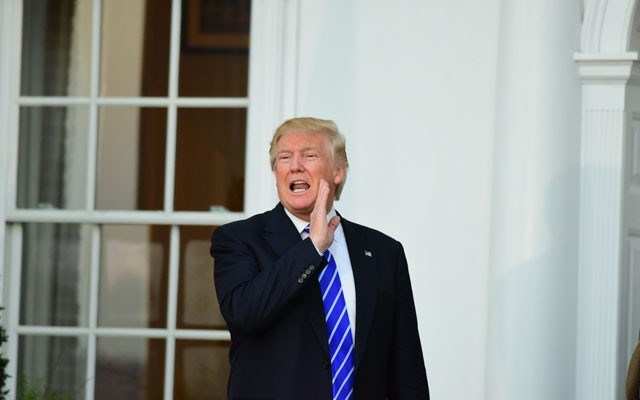Six months into the presidency of Donald Trump, and the world has yet to collapse.
Business in Canada and in Whistler has been humming along much in the same way it did before the gruelling 2016 election was capped with Trump's inauguration last January.
But how long will the stability last?
With the relentless, ongoing investigation into Trump's ties to Russia — every day, seemingly, a new revelation or expansion of the probe by U.S. special counsel Robert Mueller — it's easy to forget that there is still policy being formed and government operating somewhere in the background.
But there is, and it all has implications for how the world moves forward in the coming months and years.
Trump's pick for ambassador to Canada, Kelly Knight Craft, said she'll work to enhance the two countries' economic partnership, calling it "the most extensive and integrated economic relationship of any two nations in the world."
"If confirmed, I will seek new opportunities to foster further growth to create more jobs for both countries, while promoting free and fair trade to ensure that American businesses and workers can compete on a level playing field," Knight Craft said at her Senate confirmation hearing on July 20.
With negotiations on the new North American Free Trade Agreement (NAFTA) set to begin on Aug. 16 in Washington, it will be interesting to see how things play out in the coming months.
Canada's own ambassador to the United States, David MacNaughton, believes the new agreement can be a "win-win-win" for all three countries involved (Mexico being the third), but that Canada must find a way to allow Trump to "declare victory" to his base back home.
What that will ultimately mean for Canadians isn't clear.
Among the Trump administration's desired changes for the agreement are better access to Canadian markets for U.S. industries, cheaper cross-border shopping for Canadian consumers and the elimination of NAFTA's contentious dispute-resolution system.
While Knight Craft seems aware of the importance of the relationship, a speech from Canada's foreign minister Chrystia Freeland in the House of Commons last month suggests our government is set to forge its own path on the international stage.
In her speech, Freeland recognized the role the U.S. has played in global leadership over the past seven decades and how it has benefited Canada.
"We seek and will continue to seek to persuade our friends that their continued international leadership is very much in their national interest — as well as that of the rest of the free world," Freeland said.
"(But) the fact that our friend and ally has come to question the very worth of its mantle of global leadership puts sharper focus for the rest of us to set our own clear and sovereign course. For Canada that course must be renewal, indeed the strengthening, of the postwar multilateral order."
On the tourism front, some predicted Canada could benefit from a Trump presidency, with travellers choosing the Great White North over its fractious neighbours to the south, but so far there is no hard data supporting that claim.
In a recent interview with Global News, Roger Dow, CEO of the U.S. Travel Association — a nonprofit representing the travel industry — said international arrivals and travel-related spending in the U.S. are actually above where they were at this time last year.
"Right now we cannot identify a loss. It's contrary to everything we've heard, but travel is in slightly better shape than it was a year ago," Dow said.
"Everyone wants me to tell the story of the sky is falling, but for the travel industry, the sky is not falling."
For now, tourism remains big business in Whistler, with the resort continuing to set new records season after season.
But the industry can be a fickle one, largely guided by external forces like competing currencies and world events — a fact not lost on the administration at municipal hall.
"As a resort community we are very influenced by external factors such as the political turmoil that goes on throughout the world, (and there are) lots of challenging developments with our neighbours to the south right now," CAO Mike Furey told council last month.
Throw things like Brexit, climate change, fluctuating foreign exchange rates and a highly competitive tourism landscape into the mix, and there's a lot for our decision makers to keep their eyes on.
But all the watching in the world won't stem the tide of history, and when it comes down to it, Whistler will be at the mercy of those external forces.
"There are decades where nothing happens; and there are weeks where decades happen," founder of the Russian Communist Party Vladimir Lenin once said, in describing the Bolshevik Revolution.
It's difficult to ground yourself contextually in historical events as they're unfolding, but looking back on the past 12 months, one gets the sense we are all in the midst of deeply transformative times.
And if the first six months of Donald Trump's presidency are any indication, the world could be a very different place come 2018.




